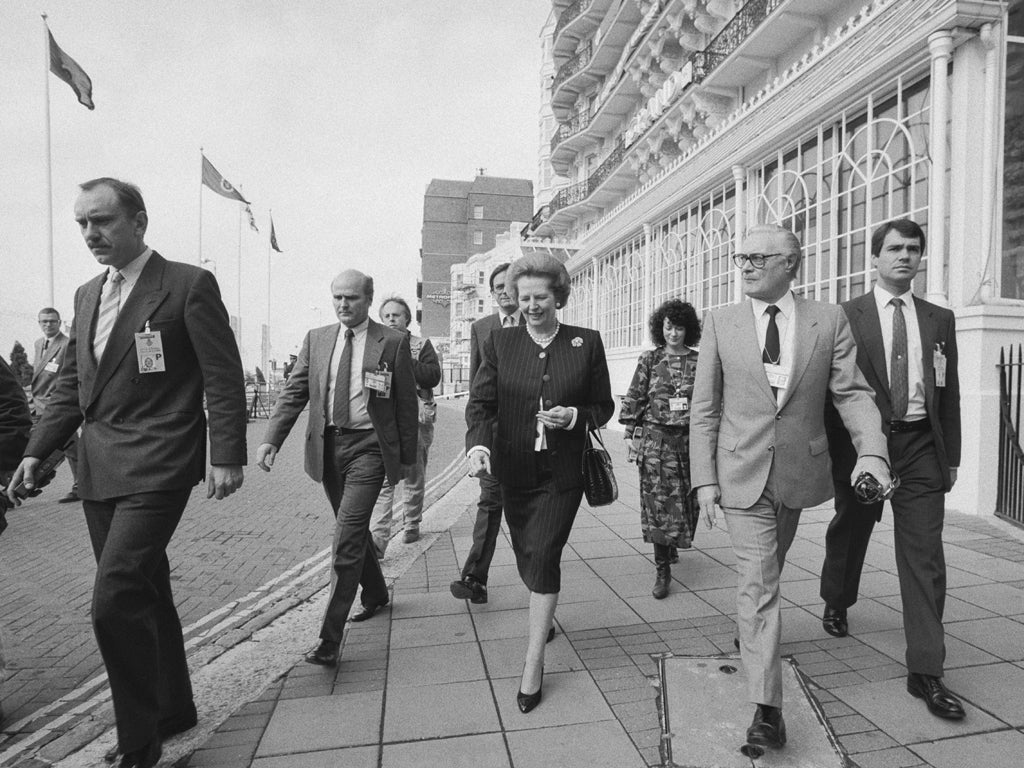Thatcherism was a national catastrophe that still poisons us
We are in the midst of the third great economic collapse since the Second World War: all three have taken place since Thatcherism launched its great crusade

Your support helps us to tell the story
From reproductive rights to climate change to Big Tech, The Independent is on the ground when the story is developing. Whether it's investigating the financials of Elon Musk's pro-Trump PAC or producing our latest documentary, 'The A Word', which shines a light on the American women fighting for reproductive rights, we know how important it is to parse out the facts from the messaging.
At such a critical moment in US history, we need reporters on the ground. Your donation allows us to keep sending journalists to speak to both sides of the story.
The Independent is trusted by Americans across the entire political spectrum. And unlike many other quality news outlets, we choose not to lock Americans out of our reporting and analysis with paywalls. We believe quality journalism should be available to everyone, paid for by those who can afford it.
Your support makes all the difference.In the war led by Margaret Thatcher’s governments – against the left, the trade unions, the post-war consensus – her side was crushingly, devastatingly, humiliatingly victorious.
In the coming days, some on the right will attempt to snuff out criticism of her legacy, arguing that it is somehow disrespectful, spiteful or ghoulish. Absurd, of course: she was a politician – the most divisive in modern British history – and what she represented must of course be debated. They will use the moment of her passing to batter Thatcherism into the national psyche: that she somehow saved Britain from ruin, put the “great” back into “Great Britain”, and so forth. Those who grew up in the Britain that Thatcher built will be patronised: you were still learning how to walk at the height of her power. And that is why it is crucial to separate Thatcherism from the woman who spearheaded it.
Thatcherism was a national catastrophe, and we remain trapped by its consequences. As her former Chancellor Geoffrey Howe put it: “Her real triumph was to have transformed not just one party but two, so that when Labour did eventually return, the great bulk of Thatcherism was accepted as irreversible.”
We are in the midst of the third great economic collapse since the Second World War: all three have taken place since Thatcherism launched its great crusade. This current crisis has roots in the Thatcherite free market experiment, which wiped out much of the country’s industrial base in favour of a deregulated financial sector.
A poisoned “debate” about social security rages in Cameron’s Britain. It focuses on the idea that there are large numbers of people stuck on benefits. It is certainly true that there were more people languishing in long-term unemployment last year than there were in all forms of unemployment 40 years ago. In large part, this is a consequence of Thatcherism’s emptying communities of millions of secure, skilled industrial jobs. Large swathes of Britain – mining villages, steel towns and so on – were devastated, and never really recovered. Even when Britain was supposedly booming, the old industrial heartlands had high levels of what is rather clinically described as “economic inactivity”.
Five million people now languish on social housing waiting lists, while billions of pounds of housing benefit line the pockets of private landlords charging rip-off rents. The scarcity of housing turns communities against each other, as immigrants or anyone deemed less deserving are scapegoated. But the guilt really lies with the Thatcherite policy of right-to-buy and failure to replace the stock that was sold off.
Champions of Thatcherism hail the crippling of the trade unions, which were battered by anti-union laws, mass unemployment, and crushing defeats of strikes, not least after the rout of the iconic miners. This has not only left workers at the mercy of their bosses, but has made them poorer, too. Four years before the crisis began, the income of the bottom half was stagnating, while for the bottom third it actually began to decline – even as corporations were posting record profits. With no unions to stand their corner, workers’ living standards have long been squeezed – driving large numbers to cheap credit.
We could go on. Britain was one of the most equal Western European countries before the Thatcherite project began, and is now one of the most unequal. Thatcherism is not just alive and well: it courses through the veins of British political life. The current government goes where Thatcherism did not dare in its privatisation of the NHS and sledgehammering of the welfare state.
The challenge ahead is the same as it was yesterday: to tear down the whole edifice of Thatcherism, heal Britain of the damage done, and build a country run in the interests of working people. It’s a fight we must all fight. The champagne is on ice until we win it.
Join our commenting forum
Join thought-provoking conversations, follow other Independent readers and see their replies
Comments